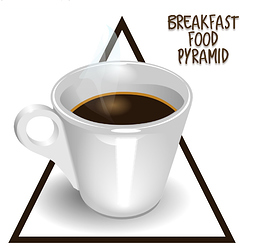Interesting thoughts re: circadian rhythm.
True enough, that the earth’s daily rotation drives many of the biological patterns we witness for all of Earth’s life. But there are also Lunar cycles that have an effect (tides, night’s darkness, etc.) along with countless seasonal cycles for both animals and plants.
So I’m not quite convinced that our eating (nourishment) ought to be a “once daily” event simply because that coincides with one full spin of the Earth around its own axis.
After all, we don’t perform most other essential functions only once per earthly spin. So why should food be a OMAD event?
I’m also not quite tracking with the “food poison” concept…
Sure, there are waste products that we don’t use (fiber, biological byproducts, etc.), but we don’t expel those only once per day either (unless you have a bladder of steel). I think of food as a resource, not a toxin to be removed - so I’m unclear on why we need to limit ourselves to taking in this life-giving resource only once until the next sunrise.
An interesting idea, but not following the premise, so the conclusion leaves me a bit confused. 








